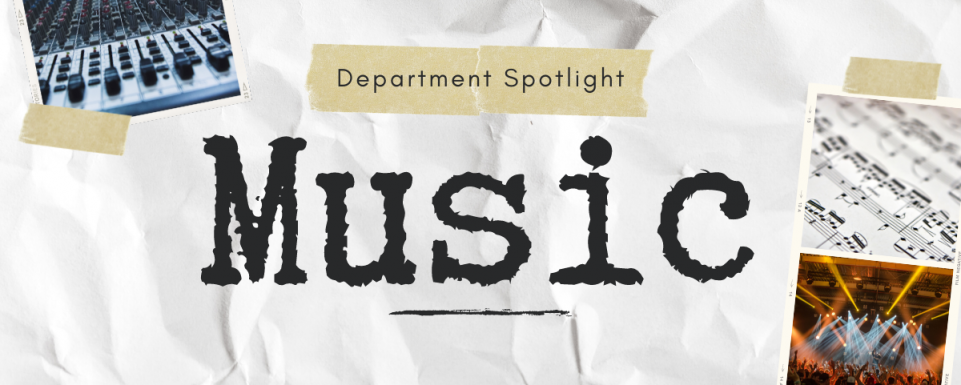Department Spotlight: Music
January 31, 2022

If anything is positive about the COVID-19 pandemic, it’s the time that it afforded people to take up new hobbies and pursue their passions. Others may just be getting back to the hobbies or work that they love now. Want to learn how to play the mandolin? It’s a good time to do it. Always loved playing the piano? Teach some online lessons. Looking to work toward a career in music while earning a credit toward your high school diploma? We’ve got you covered.
What is unique about the VHS approach to teaching music online?
Virtual High School music courses have something for all levels of music learning. If you are planning to pursue music beyond high school, we offer credit courses in both Grade 11 and 12 instrumental music. Our Grade 9 Integrated Arts course does a great job of introducing music in addition to several other fine arts. We are also incredibly excited to offer a unique course on the ins and outs of the music industry in partnership with Canada’s Music Incubator (CMI) and Coalition Music.
Our interdisciplinary approach allows students to learn about music in relation to other subjects, as well as gain the skills needed to pursue a career in music. Students explore music’s relationship to other arts like dance and visual arts, how the music industry works, different music careers, and music’s importance to global culture. Whether you enjoy composing, playing an instrument, or learning about different artists, VHS has a course for you!
View the full IDC4U MB course description here.
What do we do to set our students up for success in this department?
Our music courses are designed to provide students with the tools and support they need to succeed, both in high school and beyond. In fact, we’ve had to come up with innovative ways to teach a subject that is traditionally taught in a group or one-on-one setting. The music courses are interactive with self-exercises, video submissions, media elements, and discussions. We offer many opportunities for you to practice and receive constructive feedback from certified teachers before completing assignments. You will also find advice and detailed explanations from leading industry experts and professionals throughout the courses.
What are some of the most rewarding aspects of learning about music?
The music discipline is more than just sitting around a campfire with an old guitar, although that’s nice too. It is a combination of many subjects and is inherently interdisciplinary. Students can learn how to write the language of music, structure popular songs, market music through social media, and determine what it takes to become a music engineer or recording artist. The rewards for learning about music are endless.
View the full AMU3M course description here.
Any advice for people looking to pursue a career in this area of study?
Consider registering for our Grade 12 collaborative Music Business course created in partnership with Coalition Music and CMI. It is a chance to learn how the music industry works from industry professionals, including artists, producers, marketers, engineers, musicians, writers, and many others. You may be surprised at how many careers (beyond becoming a superstar) are out there in the music industry and how many people it takes to make a hit song.
Here’s a sneak peek at some of the interesting facts from the Music courses:
- Coalition Music, who we partnered with for our Music Business course, is a record label out of Toronto with a roster of some of Canada’s biggest artists including Our Lady Peace, Simple Plan, and The Tea Party. Check out their full roster here. Canada’s Music Incubator, created by Coalition Music, is a not-for-profit specializing in professional development and mentorship for artists, managers, and music companies. Check them out here.
- Some very famous artists actually do perform at public functions such as weddings, birthday parties, and other events. For example, Nicki Minaj earned approximately $200,000 for performing seven songs, delivering a speech, and taking fan photos at a bar mitzvah in New York in 2015.
- Composing music isn’t just about the classics, like Beethoven or Bach, that we all know. For example, the composer John Williams wrote the music for Star Wars, Harry Potter, Superman, Jurassic Park, Indiana Jones, and Jaws.
View the full AMU4M course description here.